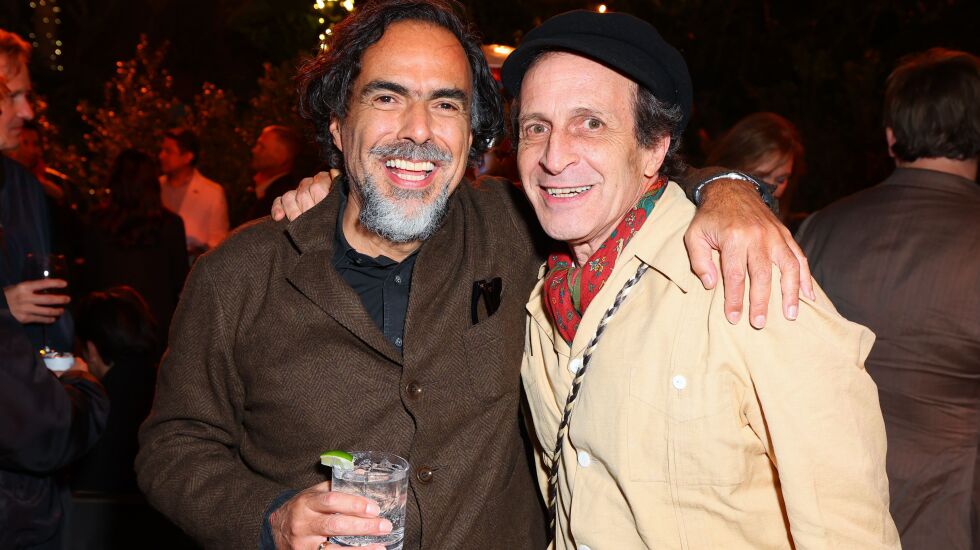
“Let it happen.”
That’s the mantra that Mexican actor Daniel Giménez Cacho repeated to himself while he worked to create the main character in “BARDO, False Chronicle of a Handful of Truths.” Cacho, a well-known actor across Latin America and Spain, has appeared in Netflix’s “Club de Cuervos” and “Who Killed Sara?” He was also the narrator in the Oscar-nominated 2001 Mexican film “Y tu mamá también.”
The film is the latest from “Birdman” director Alejandro González Iñárritu, known for work that forces viewers to face and reflect upon the human condition. For “BARDO” (opening Friday in Chicago theaters), Iñárritu wanted Cacho to do something different: tap into his creativity and build the character from scratch.
“This was very, very new for me,” Cacho told the Sun-Times. “And I am so happy with the result that I think I grew as an actor. Now it’s going to be difficult for me to come back to the other way of working and studying. ... I found this so liberating.”
He portrays Silverio, a seasoned journalist and documentarian whose work teeters the line between brilliance and arrogance.
He said that working with Iñárritu — for the first time — felt like a “very important, spiritual encounter” between creatives. The film even gets its title from a spiritual idea: bardo, or antarābhava, the state of existence that Buddhists believe one experiences between death and rebirth.

For Cacho, filming “BARDO” was an exercise in self-awareness.
“This idea came into my mind that I would love to die consciously. Dying could be my last living act,” Cacho said.
“BARDO” follows Silverio back to Mexico, where he will celebrate receiving an award from the American Society of Journalists with friends, family, fans and old colleagues (who are somewhat bitter about Silverio’s success).
But, a few things hold him back from celebrating.
For starters, Silverio has a hard time differentiating between reality and his dreams. This space in between is where the movie magic really happens. Iñárritu’s approach to symbolism is very literal; he makes sure the audience knows what is happening with graphic details.
We see Silverio and his wife Lucia dealing with the loss of their third child, Mateo, who lasted only 30 hours after birth. In denial of their son’s premature death, the couple shoves the baby back into Lucia’s womb, insisting that he is just not ready yet.
Silverio also is faced with issues surrounding his identity: for some, he is not Mexican enough. And for others, he is too Mexican. As a Mexican man who was born in Spain, Cacho says that this struggle is nothing new for him.
“I kept growing this fantasy that my origins were Spanish, my blood was Spanish,” Cacho said. “So that I had to reconnect with [my roots].”
Another way that the film skews real life is shown when Silverio speaks to his wife and his mother without moving his lips. This, Cacho says, is something that Iñárritu thought up himself. It’s unclear if this is a special talent of Silverio’s or if his loved ones can read his mind.
“I think the purpose of that to tell [viewers] that we are in a strange reality,” Cacho said. “This is not the real reality of who we are — maybe we are in some other kind of reality.”
“BARDO, False Chronicle of a Handful of Truths” will debut on Netflix for streaming on Dec. 16.







